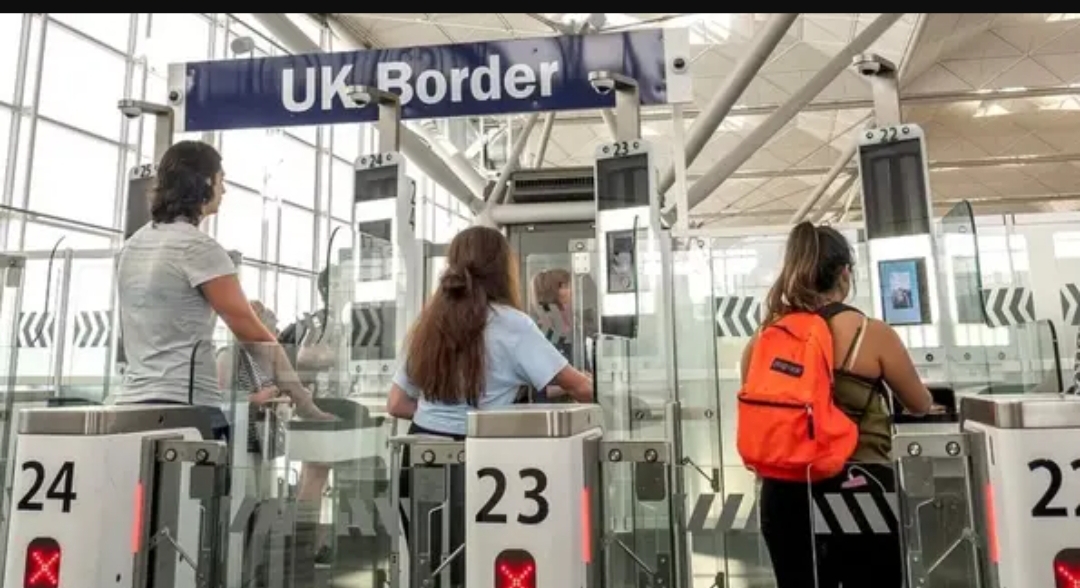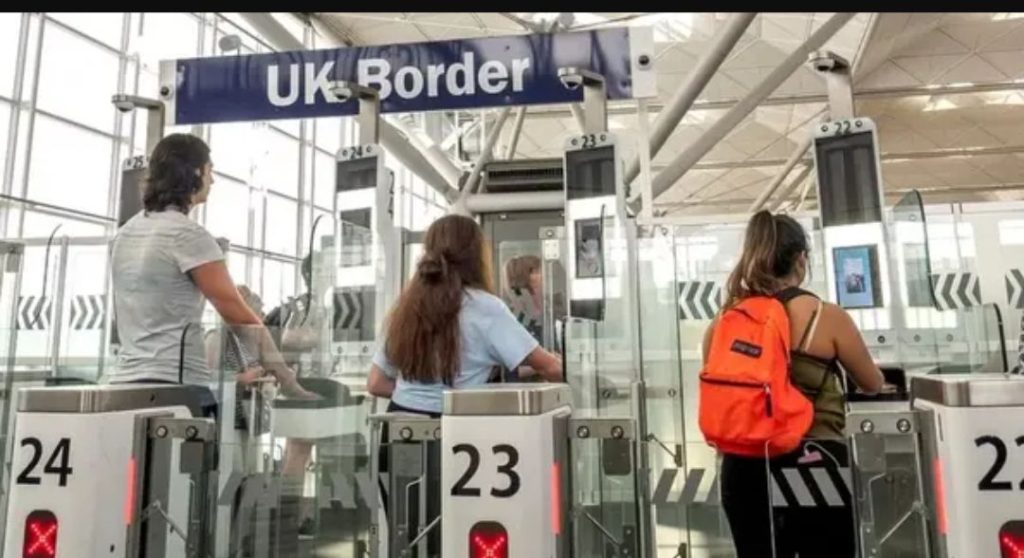Bad News For Illegal Immigrants, UK Plans to Introduce AI Facial Recognition At Airports And Borders

In a groundbreaking move, the UK Home Office is considering implementing AI facial recognition technology at British borders, a move that may render passports unnecessary. The proposed plan aims to introduce new e-gates, fostering “frictionless travel” by utilizing advanced facial recognition systems

According to GB News, Phil Douglas, the director-general of Border Force, explained that the envisioned system would create an “intelligent border,” drawing parallels to Dubai’s use of AI for 50 nationalities. The technology is expected to provide a more seamless experience, enhancing security measures and improving the efficiency of border control.
The proposed facial recognition system is designed to be “much more frictionless” than the existing methods, allowing authorities to gather extensive information about travelers in advance. Douglas stated that the system would enable authorities to know whether individuals have previously been in the UK, their compliance with immigration laws, and if there are any security records associated with them.
The anticipated benefits of the AI facial recognition system include enhanced security, streamlined border control processes, and a more informed screening of individuals before they board planes. However, it is also acknowledged that certain individuals may be barred from traveling based on the information obtained through the system.
Trials for the new technology are expected to take place this year, marking a significant step towards revolutionizing travel procedures in the UK. The plan aligns with global efforts to leverage technology for border management and security enhancement.
Currently, the UK has approximately 270 e-gates, facilitating faster travel across borders. Authorities have been progressively introducing initiatives to modernize border control, such as the Electronic Travel Authorisation system – a US-style structure where individuals pay for a travel pass and fill out a security questionnaire.
In addition to facial recognition advancements, the UK is exploring cross-border digital IDs as part of ongoing test runs. The potential integration of these technologies could lead to a future where traditional passports are replaced by more sophisticated and secure identity verification methods.
The move towards AI facial recognition technology reflects a broader trend in the digital transformation of travel and border control procedures. Countries like Finland have already begun trials of Digital Travel Credentials (DTC) at airports, allowing residents to participate in a pilot program through a dedicated smartphone app.
As the UK plans to embrace AI for border control, it aligns with the global evolution towards more efficient and secure travel experiences. The implementation of advanced technologies is expected to reshape traditional processes, making international travel more convenient while prioritizing security and compliance with immigration regulations.




